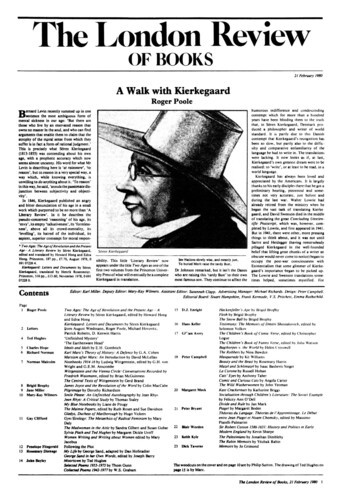Blair Worden
Blair Worden’s many books include God’s Instruments: Political Conduct in the England of Oliver Cromwell.
Unmatched Antiquary
Blair Worden, 21 February 1980
In the early 17th century, more perhaps than in any period of our history, political argument was argument about the past: about precedents and about pedigrees. Sir Robert Cotton, an antiquary in politics, is a perfect focus for a study of the connections between antiquarian research and political conflict. History, an anchor in the choppy seas of political and social change, became to monarchs and parliaments alike the arbiter of controversy: Cotton, as Mr Sharpe shows, became to monarchs and parliaments alike the arbiter of controversial historical evidence. A distinguished 18th-century antiquary recalled without exaggeration that Cotton had been ‘consulted as an oracle by the privy councillors and greatest men in the kingdom upon every difficult point relating to the constitution’. Cotton’s friend Sir Simonds D’Ewes called him ‘that unmatched antiquary’, ‘the famous antiquary of Europe’.
Pieces about Blair Worden in the LRB
Past v. Present: Blair Worden’s Civil War
Phil Withington, 10 May 2012
Societies, it is sometimes said, get the politics they deserve. Can the same be said for their history? If contemporary Britain is anything to go by then the short answer is probably yes....
Mighty Causes: the English Civil Wars
Mark Kishlansky, 11 June 2009
Thomas Hardy, it is said, believed the history of humanity could be written in six words: ‘They lived, they suffered, they died.’ As a historical account this was more than adequate....
New Model Criticism: Writing Under Cromwell
Colin Burrow, 19 June 2008
‘Politics’ is a strange word, and the particular nature of its strangeness may explain why so many people feel confused by or alienated from political processes. It can refer...
Sagest of Usurpers: Cromwell since Cromwell
Ian Gilmour, 21 March 2002
Shortly after Oliver Cromwell’s death in September 1658, Dryden wrote some ‘Heroique Stanza’s, Consecrated to the Glorious Memory of his most Serene and Renowned Highnesse...
Austere and Manly Attributes
Patrick Collinson, 3 April 1997
Unlike 1588, the Armada Year, 1578 has not endured in the national memory. But to those alive at the time, and especially those in charge of affairs – committed, ‘forward’...
Types of Ambiguity
Conrad Russell, 22 January 1987
The Church shall not so expound one place of Scripture that it shall be repugnant to another. Of all the Thirty-Nine Articles, this is perhaps the most difficult, yet it lays down a scholarly...
Tribute to Trevor-Roper
A.J.P. Taylor, 5 November 1981
The festschrift, a collection of essays in honour of a senior professor, used to be dismissed as a rather tiresome German habit. Now, I think, it has become embedded in English academic...
Read anywhere with the London Review of Books app, available now from the App Store for Apple devices, Google Play for Android devices and Amazon for your Kindle Fire.
Sign up to our newsletter
For highlights from the latest issue, our archive and the blog, as well as news, events and exclusive promotions.

